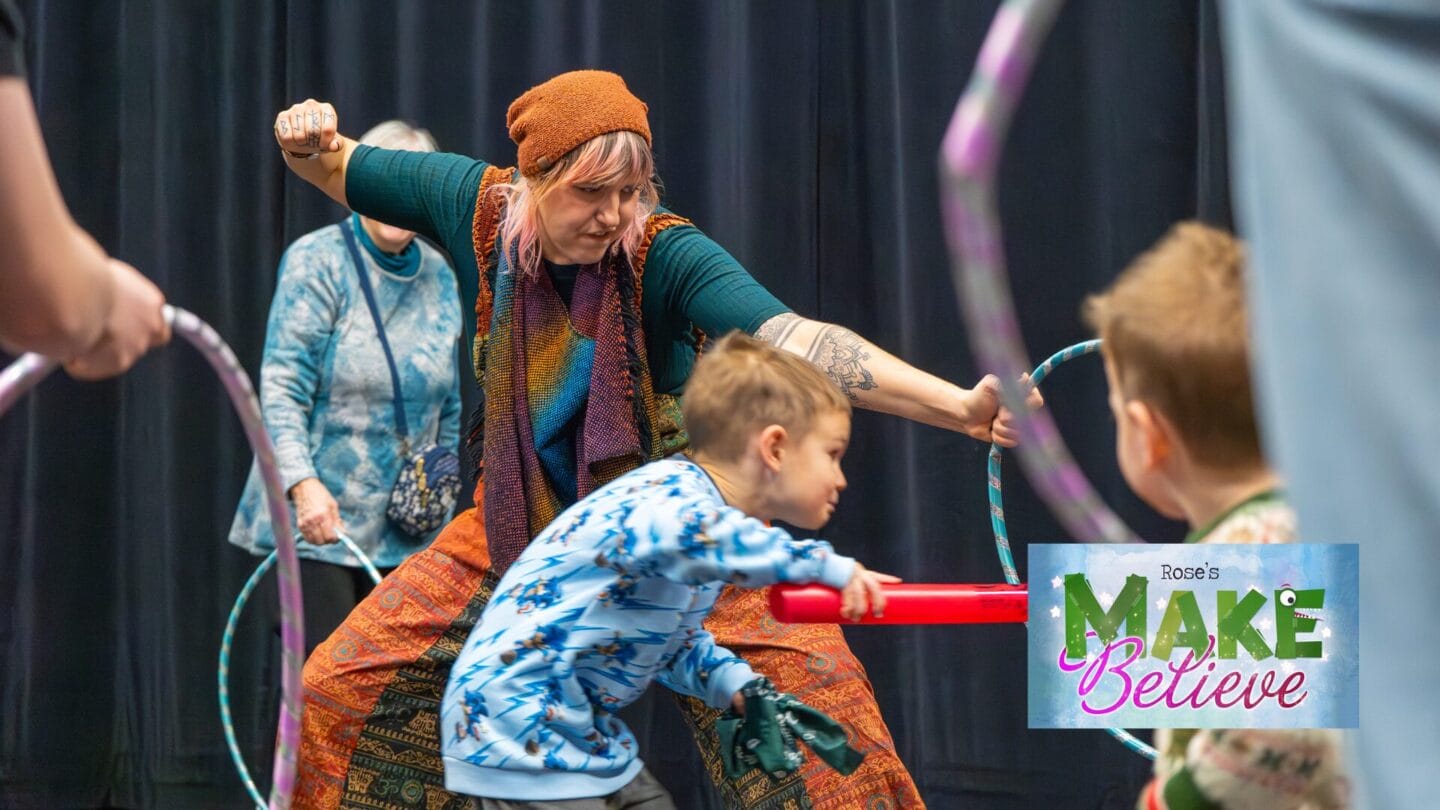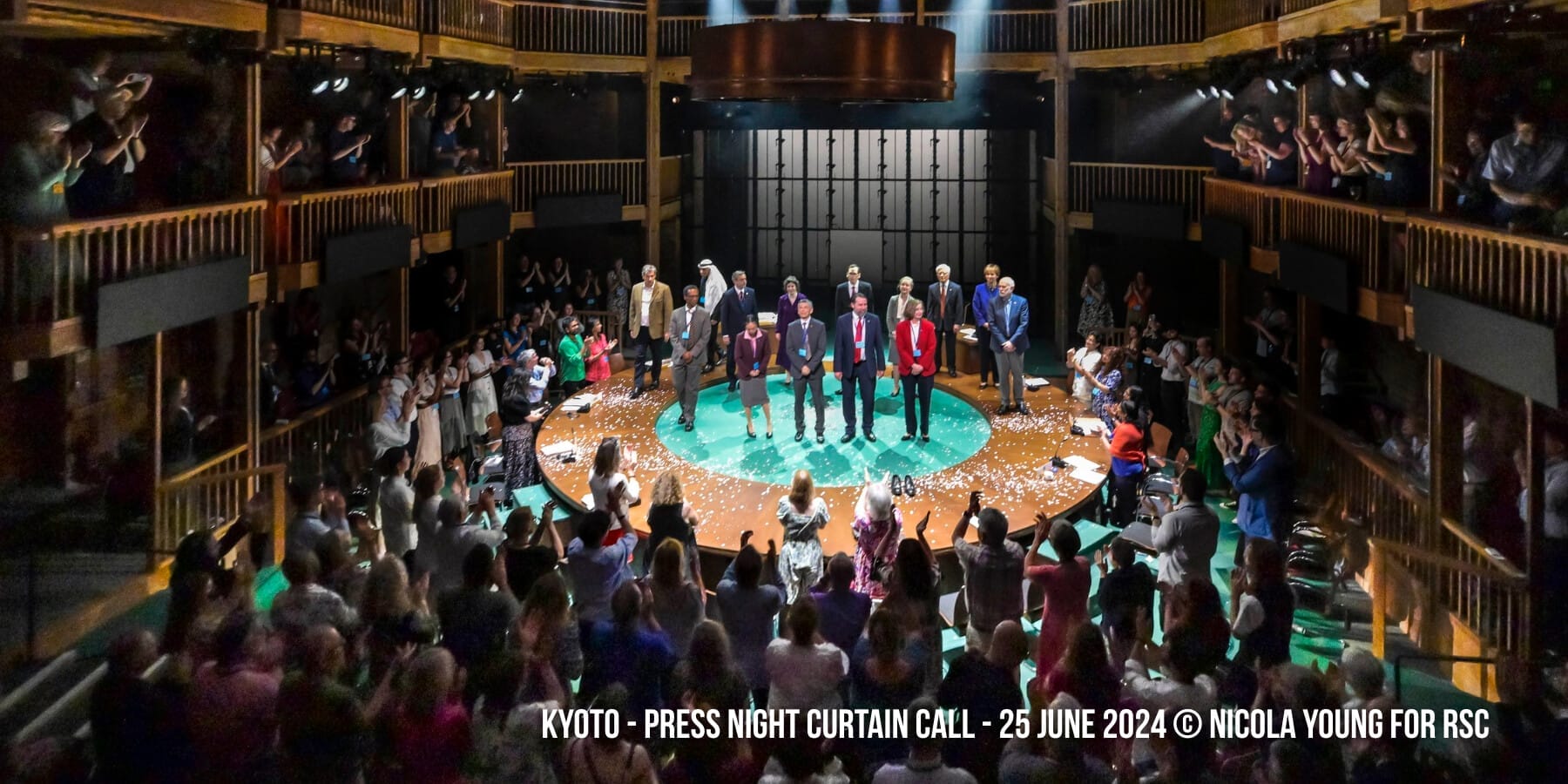Tuesday 22 April 2025 marked the 55th annual Earth Day, a day when millions across the globe come together to recognise the ongoing climate crisis and explore ways to address it. Since its inception in 1970, Earth Day has been instrumental in championing climate education and environmental literacy, bringing attention to the urgency of the situation we face.
For many in the arts community, climate action isn’t just a topic for discussion — it’s an area that requires real solutions and tangible efforts. As theatre professionals, we have an important role to play, both in storytelling and practice, in addressing the climate crisis. This is where theatre can make a difference.
Kyoto: Arts & Climate Gathering

On Friday 25 April, I had the opportunity to attend an inspiring event in London — the Kyoto: Arts & Climate Gathering — hosted by Good Chance Theatre at @sohoplace. This gathering brought together leading figures in the creative industries to discuss how storytelling can help tackle climate change. With powerful conversations led by key voices in the sector, the event focused on climate education through art, without resorting to the typical scientific jargon or political rhetoric that can often alienate audiences.
The event included thought-provoking speakers such as Suzanne Dhailwal, Holly Race Roughan, Indré Rockefeller, Nicky Hawkins, Zoë Svendsen, and Joe Murphy & Joe Robertson, the Co-Artistic Directors of Good Chance Theatre and co-writers of Kyoto. The focus was on how theatre — as the oldest form of communication — can lead us towards climate solutions and hope, not despair.
Key Takeaways from the Gathering

One central theme from the gathering was that theatre can no longer be content simply to raise awareness about climate change. We’ve moved beyond the stage of simply making people aware of the issues; it’s now time for solutions and action. Indré Rockefeller of The Circularity Project reminded us that design is our “superpower” in climate action. She noted that 80-90% of climate impact happens during the design stage. “What world are you inviting people into?” she asked. It’s time for designers and creators to consider the carbon cost in every decision, from the stage design to the stories we tell.

Nicky Hawkins, communications consultant at HEARD, pointed out that the climate crisis is the biggest and most important story of our time. But storytelling must be done in a way that is not preachy or filled with guilt. Instead, hope needs to take centre stage. The solution lies in people and humanity, with an emphasis on care and a belief in others to lead us toward a better future.
Similarly, Holly Race Roughan, Artistic Director of Headlong Theatre, highlighted that future theatre needs to focus on practice rather than just subject matter. We’ve moved beyond the age of dystopian narratives filled with fear and anxiety. Theatre should illuminate possibilities for positive change, reflecting a world where we have already fixed the climate crisis. It’s about offering hope through collaboration and shared goals.
Suzanne Dhailwal emphasised the need to centre the human story, and our relationship with the land, in our creative works. She reminded us that it is crucial to elevate the voices of those on the frontlines of climate change — the communities already experiencing its devastating effects. How can we make sure our art is truly driven by those who are directly impacted?
Zoë Svendsen, involved in climate dramaturgy, added that theatre should not just address the topic of climate change, but should embed the situation itself into the narrative. Theatre should reflect our current lived reality, where the climate crisis is no longer a future concern but a present-day experience.
The overarching message from these discussions was that we are all in this together. Community effort is essential, and theatre, as a communal space for connection, can foster that collective responsibility. The work of the creative industries should be focused on providing solutions, not pointing blame.
Small Steps, Big Impact
While the conversations at the Kyoto Gathering were insightful and inspiring, they also highlighted the practical steps that all of us — creators, individuals, organisations — can take to make a difference.
At the Key Theatre, we have been introducing green initiatives to ensure that our operations align with the values of sustainability and climate-consciousness. We now use reusable plastic cups in our bars to reduce single-use plastic waste, print our brochures on sustainable FSC paper with vegetable-based inks, and have installed new water-efficient taps to help reduce water wastage. While these changes may seem small, they are part of a larger commitment to reduce our carbon footprint and make our theatre more sustainable.
The Power of Theatre to Drive Change

At the Kyoto gathering, there was consensus that theatre has an immense opportunity — and responsibility — to use its platform to create awareness, inspire action, and move people beyond despair to hope. As we move forward in this climate emergency, the role of storytelling will be vital in shaping the future narrative of the planet.
One show that is leading the way in using theatre as a tool for climate awareness is TRASHedy, coming to the Key Theatre in May. This performance, which tackles the issue of waste and its impact on the environment, invites audiences to confront the pressing climate crisis and the destructive relationship we have with our planet. It’s not just a performance, though — there will also be a workshop that explores the role of theatre in addressing environmental issues and how we, as a collective society, can drive forward real solutions for the climate crisis.
If you’re passionate about both theatre and the environment, we encourage you to join us for this compelling performance and workshop, which promises to be an engaging and action-focused experience.






